Indonesia is a country of over 17,000 islands, with a population of more than 270 million people. It is the fourth most populous country in the world, and it has a diverse economy that is driven by a range of industries. As a result, Indonesia has become an increasingly popular destination for companies looking to source products and services.
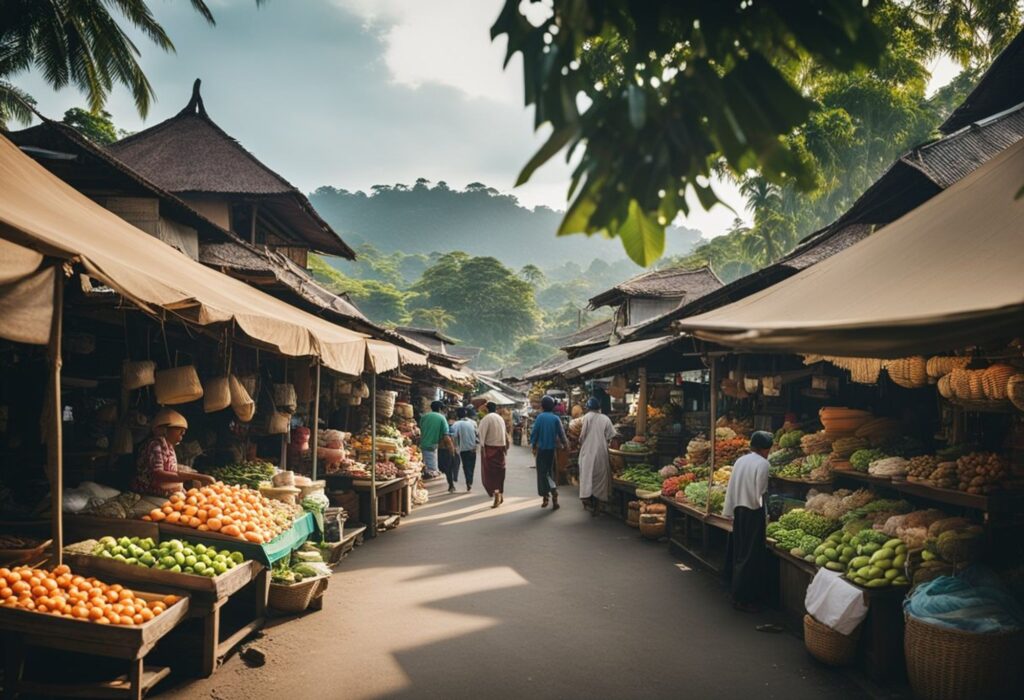
However, sourcing in Indonesia is not without its challenges. The country has a complex legal and regulatory framework, and cultural considerations can play a significant role in business negotiations. Additionally, building relationships with local suppliers can be difficult for companies that are new to the market. Nevertheless, with the right approach, companies can successfully navigate Indonesia’s sourcing landscape and unlock the potential of this dynamic market.
Key Takeaways
- Understanding Indonesia’s diverse economy is key to identifying key industries for sourcing.
- Navigating the country’s legal and regulatory frameworks is essential for effective supply chain management.
- Building relationships with local suppliers and leveraging technology can help companies overcome cultural barriers and increase sourcing efficiency.
Overview of Indonesia’s Sourcing Landscape
Indonesia is a vast archipelagic country located in Southeast Asia, with a population of over 270 million people. It is the fourth most populous country in the world and has a diverse economy that is heavily reliant on exports. Indonesia’s strategic location, abundant natural resources, and large labor force make it an attractive destination for sourcing products.
Indonesia is known for producing a wide range of products, including textiles, furniture, electronics, and agricultural products such as palm oil and rubber. The country is also home to several major ports, making it an important hub for trade in the region.
When it comes to sourcing in Indonesia, there are several factors to consider. Firstly, it is important to understand the local culture and business practices. Building strong relationships with suppliers is crucial to success in Indonesia, and this often involves face-to-face meetings and regular communication.
Another important consideration is logistics. Indonesia’s vast geography and complex infrastructure can make transportation and distribution challenging. However, there are several major ports and airports in the country, and many companies choose to work with local logistics providers to navigate these challenges.
Regulatory compliance is also an important consideration when sourcing in Indonesia. The country has a complex legal system, and it is important to ensure that all suppliers and partners comply with local laws and regulations.
Overall, Indonesia offers a wealth of opportunities for companies looking to source products in Southeast Asia. With the right approach and a deep understanding of the local landscape, businesses can tap into this dynamic market and unlock its potential for growth and success.
Identifying Key Industries in Indonesia
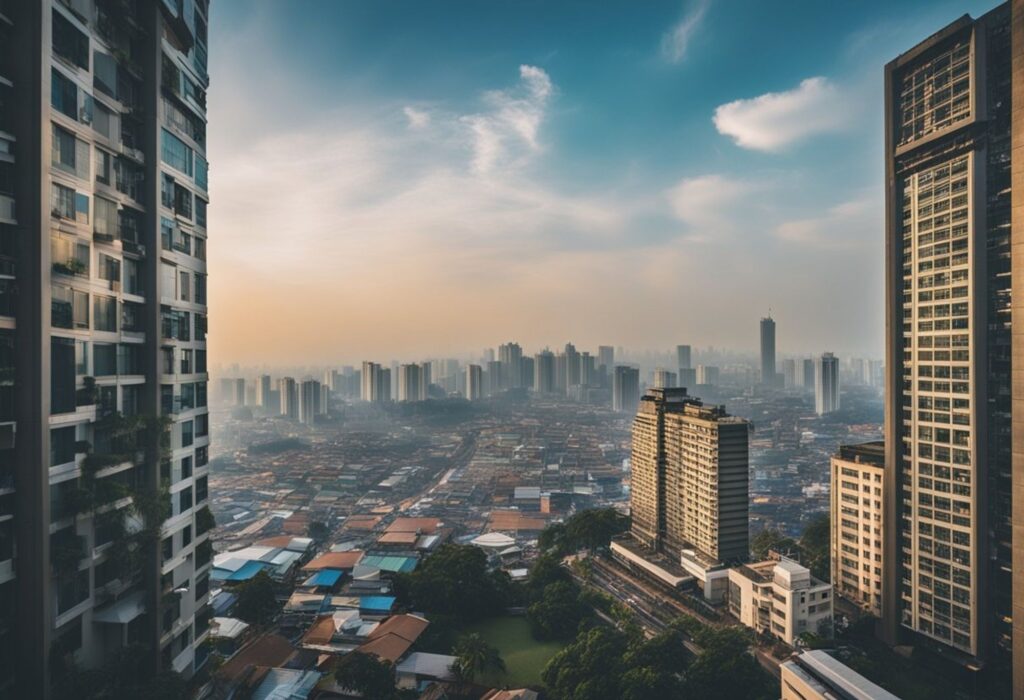
Indonesia is a country with a diverse economy and a population of over 270 million people. It has a large and growing middle class, which presents a significant opportunity for businesses looking to expand into the region. Identifying key industries in Indonesia is crucial to understanding the potential of the market.
Manufacturing
Manufacturing is one of the key industries in Indonesia, contributing significantly to the country’s GDP. The manufacturing sector in Indonesia has been growing steadily over the past few years, and the government has been actively promoting it through various initiatives. The country has a strong manufacturing base in textiles, footwear, and electronics, among other sectors.
Agriculture
Agriculture is another important industry in Indonesia, with the country being one of the largest producers of palm oil in the world. Other significant agricultural products include rubber, coffee, cocoa, and spices. The government has been actively promoting the development of the agricultural sector, with a focus on improving productivity and increasing exports.
Tourism
Tourism is a rapidly growing industry in Indonesia, with the country attracting millions of visitors every year. The country has a diverse range of attractions, including beaches, cultural sites, and natural wonders. The government has been actively promoting tourism through various initiatives, including the development of infrastructure and the simplification of visa requirements.
Mining
Mining is another significant industry in Indonesia, with the country being one of the largest producers of coal and nickel in the world. Other significant minerals produced in Indonesia include gold, copper, and tin. The government has been promoting the development of the mining sector through various initiatives, including the simplification of regulations and the provision of incentives for investment.
In conclusion, Indonesia is a country with a diverse economy and a range of industries that present significant opportunities for businesses looking to expand into the region. Identifying key industries in Indonesia is crucial to understanding the potential of the market, and businesses should carefully consider the opportunities and challenges presented by each sector before making investment decisions.
Navigating Legal and Regulatory Frameworks
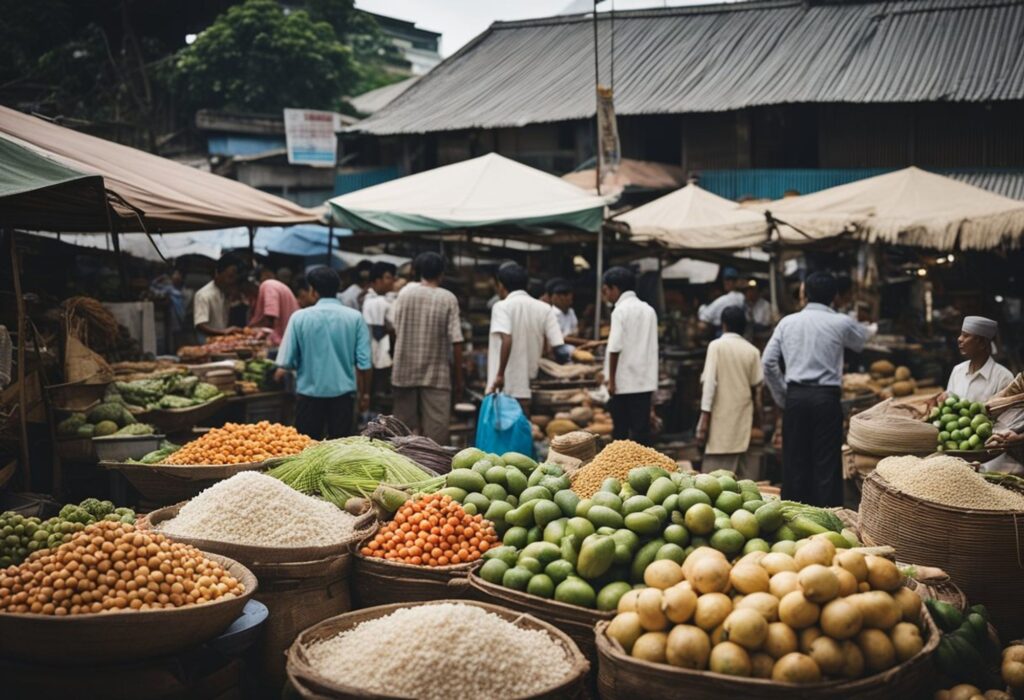
Indonesia has a complex legal and regulatory environment that businesses must navigate to succeed in the country. Understanding Indonesian business law and compliance requirements is essential to avoid legal issues and regulatory penalties.
Understanding Indonesian Business Law
Indonesian business law is based on Dutch civil law and has undergone significant changes in recent years to attract foreign investment. The country has a legal system that is divided into two main branches: the civil court system and the religious court system.
The civil court system handles commercial disputes, while the religious court system handles family law and other religious matters. It is important to note that the religious court system only applies to Muslims, who make up the majority of the population.
Foreign investors must also be aware of the restrictions on foreign ownership of certain industries, such as banking, telecommunications, and media. These restrictions are designed to protect domestic industries and promote local investment.
Compliance and Regulatory Requirements
Indonesia has a complex regulatory framework that businesses must comply with to operate legally in the country. The government has implemented a range of regulations to promote transparency, protect consumers, and prevent corruption.
Some of the key regulatory requirements that businesses must comply with include:
- Business registration: All businesses must register with the government to operate legally in Indonesia. The registration process can be time-consuming and complex, but it is essential to avoid legal issues and penalties.
- Taxation: Businesses must comply with Indonesian tax laws and regulations, which can be complex and subject to change. It is important to work with a local accountant or tax advisor to ensure compliance.
- Employment law: Indonesian employment law is complex and subject to change. Businesses must comply with a range of regulations related to minimum wage, working hours, and employee benefits.
- Environmental regulations: Indonesia has implemented a range of environmental regulations to protect the country’s natural resources and promote sustainable development. Businesses must comply with these regulations to avoid legal issues and penalties.
Overall, navigating the legal and regulatory frameworks in Indonesia can be challenging, but it is essential for businesses to succeed in the country. By understanding Indonesian business law and compliance requirements, businesses can operate legally and avoid legal issues and penalties.
Establishing Effective Supply Chain Management
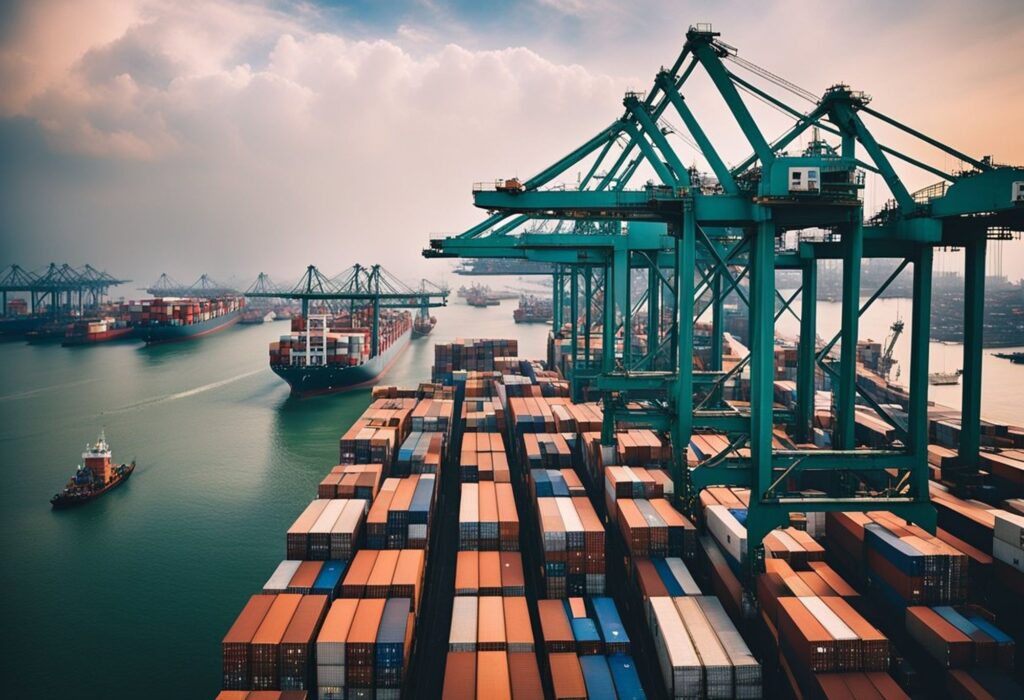
When it comes to sourcing in Indonesia, establishing effective supply chain management is crucial. This involves ensuring that the logistics and infrastructure are in place, and that quality control and assurance measures are implemented.
Logistics and Infrastructure
Indonesia is made up of thousands of islands, which can make logistics and transportation challenging. However, the country has been investing in improving its infrastructure in recent years, with a focus on developing its ports, airports, and road networks.
To establish effective supply chain management in Indonesia, it is important to work with reliable logistics partners who have a strong understanding of the local market. This can help to ensure that goods are transported efficiently and that any potential issues are addressed quickly.
Quality Control and Assurance
Quality control and assurance are essential when sourcing from Indonesia. This involves ensuring that suppliers meet the necessary quality standards and that the products are safe and fit for purpose.
To establish effective quality control and assurance measures, it is important to work with suppliers who have a strong track record of quality and reliability. This can involve conducting regular audits and inspections, as well as implementing strict quality control processes.
Overall, establishing effective supply chain management is key to unlocking the secrets to sourcing in Indonesia. By focusing on logistics and infrastructure, as well as quality control and assurance, businesses can ensure that they are able to source high-quality products efficiently and reliably.
Cultural Considerations in Business Negotiations
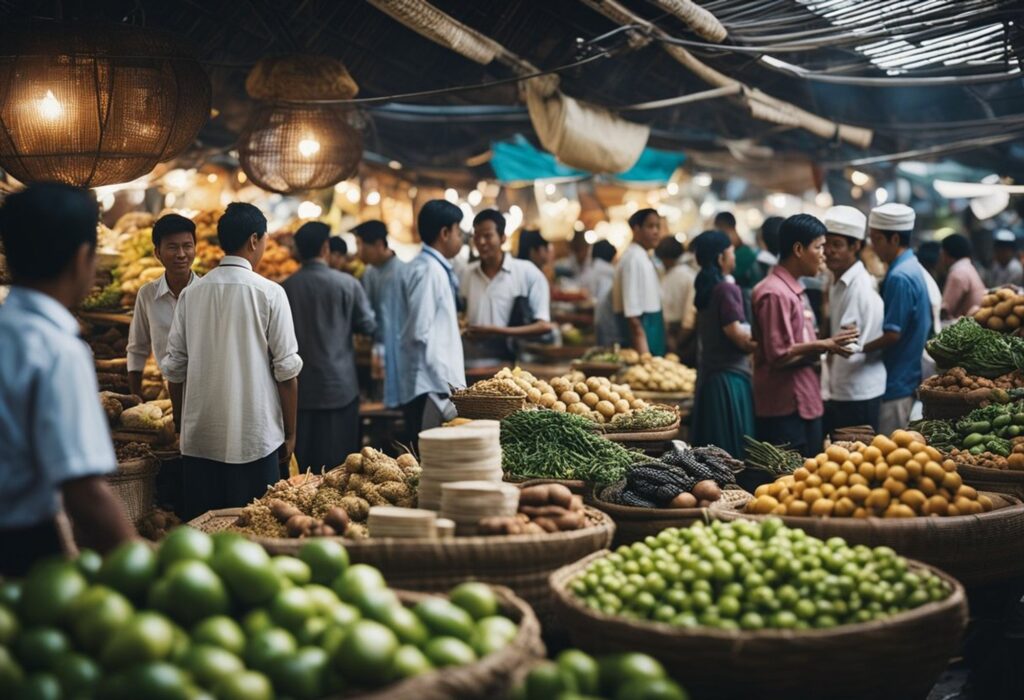
Indonesia is a country with a rich cultural heritage. As such, it is important to understand the cultural nuances when negotiating with Indonesian business partners. In Indonesia, business negotiations are not just about the transaction, but also about building relationships.
Indonesians value politeness and respect in all aspects of life, including business. It is important to show respect for the Indonesian culture and customs. This can be done by learning a few basic phrases in Bahasa Indonesia, the official language of Indonesia.
Another important aspect to consider is hierarchy. Indonesians value hierarchy and respect for authority. It is important to address the most senior person in the room first, and to use formal titles such as “Bapak” (father) or “Ibu” (mother) when addressing someone older or in a position of authority.
Gift-giving is another common practice in Indonesian business culture. It is customary to bring a small gift when meeting with a potential business partner. The gift should be modest and appropriate for the occasion.
Indonesians also place a high value on building personal relationships. It is important to take the time to get to know your business partner before discussing business matters. This can be done by engaging in small talk and asking about their family and interests.
In summary, understanding the cultural nuances of Indonesia is crucial when conducting business negotiations. By showing respect for Indonesian culture and customs, addressing hierarchy, giving appropriate gifts, and building personal relationships, you will be better equipped to navigate the business landscape in Indonesia.
Building Relationships with Local Suppliers
Building strong relationships with local suppliers is essential to sourcing success in Indonesia. Developing a partnership with local manufacturers can lead to better deals, smoother operations, and a reliable supply chain. In this section, we will discuss communication strategies, negotiation tactics, and contracting best practices to help you build long-lasting relationships with your suppliers.
Communication Strategies
Effective communication is key to building strong relationships with local suppliers. When sourcing in Indonesia, it is important to keep in mind the cultural differences and language barriers that may arise. To overcome these challenges, it is recommended to hire a local translator or interpreter to facilitate communication. Additionally, it is important to establish clear lines of communication with your suppliers and to maintain regular contact to ensure that everyone is on the same page.

Negotiation and Contracting
Negotiation and contracting are critical aspects of building relationships with local suppliers in Indonesia. When negotiating with local suppliers, it is important to be respectful and patient. Indonesian culture places a high value on relationships and trust, so it is important to take the time to get to know your suppliers and build a rapport with them before entering into negotiations.
When it comes to contracting, it is essential to have a clear and well-defined agreement in place. This should include details such as pricing, delivery schedules, quality standards, and dispute resolution procedures. It is also recommended to have a local lawyer review your contract to ensure that it is legally binding and enforceable in Indonesia.
By following these communication strategies, negotiation tactics, and contracting best practices, you can build strong relationships with local suppliers in Indonesia and unlock the secrets to sourcing success.
Leveraging Technology for Sourcing Efficiency
In today’s fast-paced business environment, leveraging technology is essential for companies to stay competitive. When it comes to sourcing in Indonesia, technology can help streamline processes, improve data accuracy, and optimize supplier management.
One way to leverage technology for sourcing efficiency is by using procurement software. These platforms can help automate processes such as purchase orders, invoices, and supplier management. By using procurement software, companies can reduce the time and resources required for manual tasks, allowing employees to focus on more value-added activities.
Another way to improve sourcing efficiency is by using data analytics. By collecting and analyzing data on supplier performance, companies can identify areas for improvement and make data-driven decisions. For example, data analytics can help identify suppliers that consistently deliver high-quality products on time, allowing companies to focus their sourcing efforts on these suppliers.
Finally, e-sourcing platforms can help companies optimize their supplier management. These platforms allow companies to manage their entire sourcing process from a single platform, including supplier selection, negotiation, and contract management. By using e-sourcing platforms, companies can improve collaboration with suppliers, reduce sourcing cycle times, and improve overall sourcing efficiency.
Overall, leveraging technology can help companies unlock greater value from their sourcing efforts in Indonesia. By using procurement software, data analytics, and e-sourcing platforms, companies can streamline processes, improve data accuracy, and optimize supplier management, allowing them to stay competitive in today’s fast-paced business environment.
Sustainability and Ethical Sourcing Practices

Indonesia is known for its rich natural resources, including timber, palm oil, and minerals. However, the exploitation of these resources has led to environmental degradation and human rights violations. As a result, sustainability and ethical sourcing practices have become increasingly important for businesses operating in Indonesia.
Sustainability refers to the responsible use of natural resources to ensure that they are available for future generations. Ethical sourcing practices, on the other hand, involve ensuring that the products and materials sourced by a company are produced in a socially responsible and environmentally sustainable manner.
To promote sustainability and ethical sourcing practices, the Indonesian government has implemented various regulations and initiatives. For example, the Indonesian Sustainable Palm Oil (ISPO) certification scheme was launched in 2011 to ensure that palm oil production is environmentally sustainable and socially responsible. Companies that obtain ISPO certification are able to demonstrate their commitment to sustainability and ethical sourcing practices.
In addition to government initiatives, businesses can also take steps to promote sustainability and ethical sourcing practices in Indonesia. This can include conducting due diligence on suppliers to ensure that they meet certain ethical standards, such as upholding fair labor practices and practicing environmental sustainability. Businesses can also work with local communities to promote sustainable practices and support social development initiatives.
Overall, sustainability and ethical sourcing practices are becoming increasingly important for businesses operating in Indonesia. By promoting these practices, businesses can demonstrate their commitment to responsible and sustainable operations, while also contributing to the long-term well-being of local communities and the environment.
Risk Management and Contingency Planning

When sourcing from Indonesia, it is important to have a comprehensive risk management and contingency plan in place. This will help mitigate potential risks and minimize the impact of supply chain disruptions on your business operations, reputation, and bottom line.
One of the first steps in developing a risk management plan is to identify potential risks. These can come from various sources, such as political instability, natural disasters, supplier bankruptcy, transportation disruptions, and quality issues. Once the risks have been identified, they should be prioritized according to likelihood and severity.
After identifying and prioritizing risks, the next step is to develop a contingency plan. This plan should outline the steps to be taken in the event of a supply chain disruption. For example, if a supplier goes bankrupt, the contingency plan should include a list of alternative suppliers and a timeline for switching to them. It is important to regularly review and update the contingency plan to ensure it remains relevant and effective.
Another important aspect of risk management is conducting due diligence on suppliers. This includes assessing their financial stability, quality control processes, and compliance with local laws and regulations. It is also important to have a clear contract with suppliers that outlines expectations, responsibilities, and consequences in the event of a breach.
Overall, having a comprehensive risk management and contingency plan in place can help mitigate potential risks and ensure a smooth and successful sourcing experience in Indonesia.
Frequently Asked Questions

What are the key steps to finding reputable manufacturers in Indonesia?
Finding reputable manufacturers in Indonesia requires a thorough understanding of the local market and industry landscape. Businesses should conduct extensive research and due diligence to identify potential suppliers and verify their credentials. This includes checking their business licenses, certifications, and references from previous clients. It is also recommended to visit the manufacturing facilities in person to ensure they meet the necessary quality standards and have the capacity to meet the required production volumes.
How does the service industry in Indonesia compare to its manufacturing sector?
Indonesia’s service industry has been growing rapidly in recent years and is expected to continue to do so in the future. However, the manufacturing sector remains a key driver of the country’s economy and is responsible for a significant portion of its exports. While the service industry offers opportunities for businesses in areas such as tourism, finance, and technology, the manufacturing sector remains a vital component of Indonesia’s economic growth.
Which industries are currently leading Indonesia’s economic growth?
Indonesia’s economic growth is being driven by a diverse range of industries, including manufacturing, mining, agriculture, and services. Some of the fastest-growing sectors in the country include automotive, electronics, textiles, and food and beverage. However, the government is also investing heavily in developing other industries, such as renewable energy, to help drive future growth.
What are the latest statistics on Indonesia’s manufacturing output?
According to the latest data, Indonesia’s manufacturing sector grew by 4.5% in 2020, despite the challenges posed by the COVID-19 pandemic. The country’s top manufacturing industries include textiles, automotive, electronics, and food and beverage. The government has set ambitious targets to increase the sector’s contribution to the country’s GDP to 25% by 2025.
How do manufacturing costs in Indonesia compare to those in China?
Manufacturing costs in Indonesia are generally lower than those in China, making it an attractive destination for businesses looking to reduce their production costs. Labor costs in Indonesia are significantly lower than in China, while the country also benefits from a large and growing domestic market, as well as favorable government policies aimed at attracting foreign investment.
What strategies should businesses adopt for effective industry growth in Indonesia?
To achieve effective industry growth in Indonesia, businesses should focus on developing a deep understanding of the local market and its unique challenges. This includes building strong relationships with local suppliers, investing in workforce development and training, and leveraging technology to improve efficiency and productivity. It is also important to stay up-to-date with the latest government policies and regulations, and to work closely with local partners to navigate the complex business environment.
Unlock the Secrets to Sourcing in Indonesia with Buyamia!
Dive into our ultimate guide and discover the best strategies for sourcing high-quality products from Indonesia. From local insights to expert tips, empower your business with the knowledge to succeed. Click here to access our comprehensive guide and start your sourcing journey today!

Leave a Reply